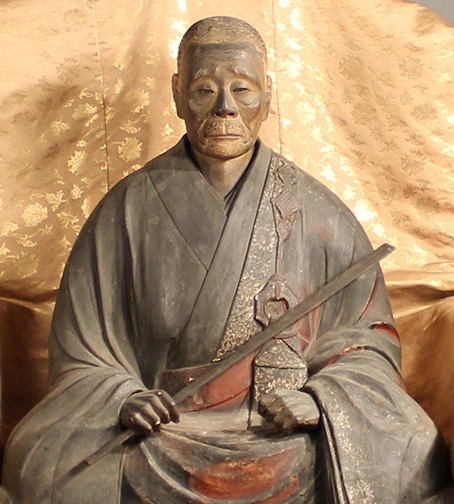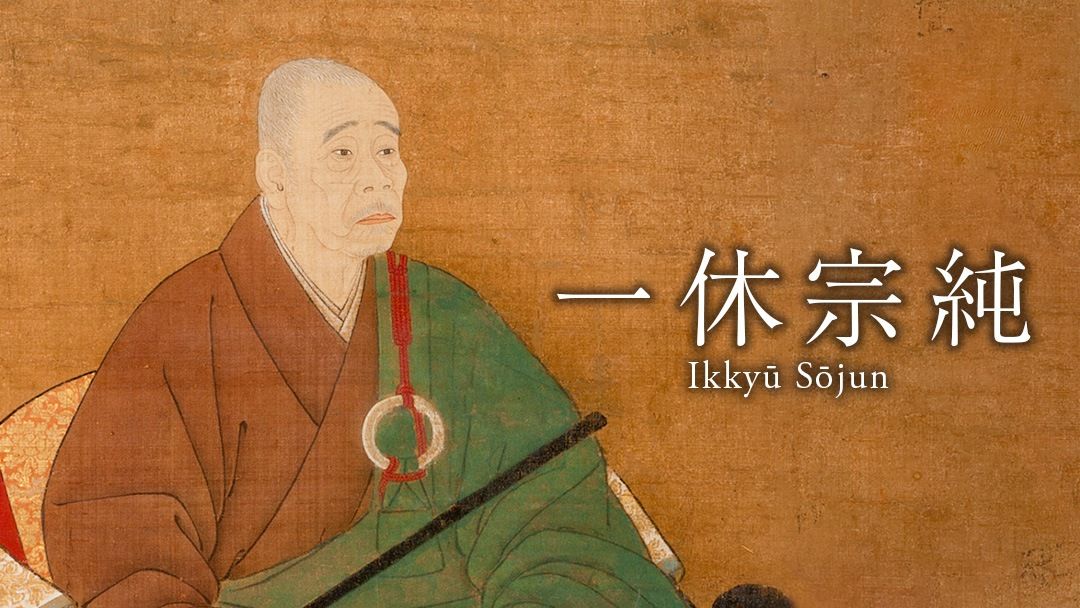Ikkyu Sojun: Zen Master. Buddhist Verses to Chant Before Eating. Yama - Buddhist Icon of Hell and Impermanence 'Siddhartha' Quotes From His Spiritual Journey. The 'drunken' part links to a type of consciousness that emphasises on instinct, a celebratory and egalitarian attitude, and his hero Ikkyu Sojun. 28 In 2014, Bolelli released a sixteen-part lecture series about Taoist philosophy. 29 He has continued to appear on various popular podcasts, including Mike Vallely's The Mike V Show.
A melancholy autumn wind
Blows through the world;
The pampas grass waves,
As we drift to the moor,
Drift to the sea.
What can be done
With the mind of a man
That should be clear
But though he is dressed up in a monk’s robe,
Just lets life pass him by?
Toward dawn I dozed off, and in my dream I found myself surrounded by a group of skeletons . . . . One skeleton came over to me and said:
Memories
Flee and
Are no more.
All are empty dreams
Devoid of meaning.
Violate the reality of things
And babble about
'God' and 'the Buddha'
And you will never find
the true Way.
I liked this skeleton . . . . He saw things clearly, just as they are. I lay there with the wind in the pines whispering in my ears and the autumn moonlight dancing across my face.
What is not a dream? Who will not end up as a skeleton? We appear as skeletons covered with skin -- male and female -- and lust after each other. When the breath expires, though, the skin ruptures, *** disappears, and there is no more high or low. Underneath the skin of the person we ****** and caress right now is nothing more than a set of bare bones. Think about it -- high and low, young and old, male and female, all are the same. Awaken to this one great matter and you will immediately comprehend the meaning of 'unborn and undying.'
If chunks of rock
Can serve as a memento
To the dead,
A better headstone
Would be a simple tea-mortar.
Humans are indeed frightful beings.
A single moon
Bright and clear
In an unclouded sky;
Yet still we stumble
In the world’s darkness.
Have a good look -- stop the breath, peel off the skin, and everybody ends up looking the same. No matter how long you live the result is not altered[even for emperors]. Cast off the notion that 'I exist.' Entrust yourself to the wind-blown clouds, and do not wish to live for ever.
This world
Is but
A fleeting dream
So why by alarmed
At its evanescence?
The vagaries of life,
Though painful
Teach us
Not to cling
To this floating world.
Why do people
Lavish decorations
On this set of bones
Destined to disappear
Without a trace?
No one really knows
The nature of birth
Nor the true dwelling place.
We return to the source
And turn to dust.
Many paths lead from the foot of the mountain,
But at the peak
We all gaze at the
Single bright moon.
If at the end of our journey
There is no final
Resting place,
Then we need not fear
Losing our Way.
No beginning,
No end.
Our mind
is born and dies:
The emptiness of emptiness!
. . . . . . . . . . . . . . . . . . . . . . . . . . . . . . . . . . .
Rain, hail, snow and ice:
All are different,
But when they fall
They become the same water
As the valley stream.
The ways of proclaiming
The Mind vary,
But the same heavenly truth
Can be seen
In each and every one.
Cover your path
With the fallen pine needles
So no one will be able
To locate your
True dwelling place.
1394-1481 Ikkyū (self-named: 'Crazy Cloud') was an eccentric, iconoclastic Japanese Zen Buddhist monk and poet. He had a great impact on the infusion of Japanese art and literature with Zen attitudes and ideals.
portrait of Ikkyu by Bokusai
Ikkyū was born in 1394 in a small suburb of Kyoto. It is generally held that he was the son of Emperor Go-Komatsu and a low-ranking court noblewoman.[1] His mother was forced to flee to Saga, Japan, where Ikkyū was raised by servants. At the age of five, Ikkyu was separated from his mother and placed in a Rinzai Zen temple in Kyoto called Ankoku-ji, as an acolyte.[1] The temple masters taught Chinese culture and language as part of the curriculum, a method termed Gozan Zen. He was given the name Shuken, and learned about Chinese poetry, art and literature.
When Ikkyū turned thirteen he entered Kennin-ji in Kyoto to study Zen under a well known priest by the name of Botetsu. Here Ikkyū began to write poetry frequently that was non-traditional in form. He was openly critical of Kennin-ji's leadership in his poetry, disheartened with the social stratum and lack of zazen practice he saw around him. In 1410, at the age of sixteen, Ikkyū left Kennin-ji and entered the temple Mibu, where an abbot named Seiso was in residence. He did not stay long, and soon found himself at Saikin-ji in the Lake Biwa region where he was the sole student of an abbot named Ken'o. It seemed Ikkyū had finally found a master that taught true Rinzai Zen as Ikkyū saw it. Ken'o was sporadic in his teaching style and was a strong believer in the supremacy of zazen. In 1414, when Ikkyū was 21, Keno died. Ikkyū performed funeral rites and fasted for seven days. In despair Ikkyu tried to commit suicide by drowning himself in Lake Biwa, but was talked out of it from the shore by a servant of his mother.
Ikkyū soon found a new teacher in a master named Kaso at Zenko-an, a branch temple of Daitoku-ji. Kaso was much like Ken'o in his style. For years he worked hard on assigned koans and made dolls for a local merchant in Kyoto. In 1418 Ikkyū was given Case 15 of the Mumonkan, Tozan's 60 Blows. One day a band of blind singers performed at the temple and Ikkyū penetrated his koan while engrossed in the music. In recognition of his understanding Kaso gave Shuken the Dharma name Ikkyu, which roughly means One Pause. In 1420 Ikkyū was meditating in a boat on Lake Biwa when the sound of a crow sparked satori. Kaso confirmed this great enlightenment and granted Ikkyu inka. Ikkyū came up against the jealousy of Yoso, a more senior student who eventually came to run the monastery. In Ikkyū's poems, Yoso appears as a character unhealthily obsessed with material goods, who sold Zen to increase the prosperity of the temples.

Ikkyu could sometimes be a troublemaker. Known to drink in excess, he would often upset Kaso with his remarks and actions to guests. In response, Kaso gave inka to Yoso and made him Dharma heir. Ikkyu quickly left the temple and lived many years as a vagabond. He was not alone, however, as he had a regular circle of notable artists and poets from that era. Around this time, he established a relationship with a blind singer Mori who became the love of his later life.
Ikkyu worked to live Zen outside of formal religious institutions. However, the Ōnin War had reduced Daitokuji to ashes, and Ikkyū was elected abbot late in life, a role he reluctantly took on. This firmly placed him in one of the most important Zen lineages. In 1481, Ikkyū died at the age of eighty-seven from acute ague.

Ikkyu Sojun Books
Ikkyū is one of the most significant (and eccentric) figures in Zen history. To Japanese children, he is a folk hero, mischievous and always out-smarting his teachers and the shogun. In addition to passed down oral stories, this is due to the very popular animated TV series 'Ikkyū-san'. In Rinzai Zen tradition, he is both heretic and saint. Ikkyū was among the few Zen priests who argued that his enlightenment was deepened by consorting with pavilion girls. He entered brothels wearing his black robes, since for him sexual intercourse was a religious rite. At the same time he warned Zen against its own bureaucratic politicising. Usually he is referred to as one of the main influences on the Fuke sect of Rinzai zen, as he is one of the most famous flute player mendicants of the medieval times of Japan. The piece 'Murasaki Reibo' is attributed to him. He is credited as one of the great influences on the Japanese tea ceremony, and renowned as one of medieval Japan's greatest calligraphers and sumi-e artists.
Ikkyu Sojun Quotes
Ikkyū wrote in Kanbun style classical Chinese, which was employed by many contemporary Japanese authors. His verse is immediate, poignant, insightful, and at times moving. For instance, the 'Calling My Hand Mori's Hand' poem.
My hand, how it resembles Mori's hand.
I believe the lady is the master of loveplay;
If I get ill, she can cure the jeweled stem.
And then they rejoice, the monks at my meeting.[2]
In popular culture
In the anime OVA Read or Die, a clone of Ikkyu appears as the leader of the villains, all of whom are also clones of famous historical figures.
In the second edition of the book On the Warrior's Path, author Daniele Bolelli refers to Ikkyu as his 'hero and philosophical role model'. He also explored Ikkyu's life story in a chapter of his 50 Things You're Not Supposed to Know: Religion.


Drivers lxe. The Japanese manga author Hisashi Sakaguchi wrote a life story of Ikkyu, あっかんべェ一休, 'Ikkyu', or 'Akkanbe Ikkyu', more or less according to the popular stories about him. The manga has been translated in four volumes into Spanish, French, German and Italian. In the manga Afterschool Charisma, a clone of Ikkyu appears among the main body of classmates in a special school filled with clones of famous historical figures. Comic author Tom Robbins identifies Ikkyu as his 'idol'.[3][4] In the anime/manga Eyeshield 21, Hosakawa Ikkyū (細川一休) is the name of the genius cornerback on the Shinryuji Naga American football team.
In the PSP game GA Geijutsuka Art Design Class Slapstick Wonderland, the children's story version of Ikkyu can be chosen as the picture book project theme/final story part of the game.
Ikkyu Pdf
Kleenex Girl Wonder wrote the song Don't Cry, Ikkyu about Ikkyu.
